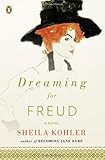Freudian Psychology
Have We Lost the Art of Conversation?
How to be an interesting and interested speaker and listener
Posted October 2, 2014
Certainly one can learn a lot by listening to the mistakes others make: those holding forth at length about themselves or their convictions. As Montaigne says the art of conversation is difficult. “What we say in our disfavor is always believed, but when we commend ourselves we arouse mistrust.”
Yet conversation, which may be becoming obsolete, is such a useful and fruitful exercise. Montaigne also says that in comparison to conversation, “The study of books is a languid and feeble process with no heat.” Conversation stimulates, excites, and enables us to rise above ourselves. When we share ideas, when we press an argument, our minds are strengthened and stimulated.
I have seen this in the classrooms where I teach where the small groups of students in a seminar are encouraged to come in without machines of any kind , and where they are obliged to look at one another and not a screen, and to talk to one another in discussion on an idea or text. I have found that a group of students, if they are stimulated to share their ideas freely and without censure are able to help one another to clarify their ideas and to come to some sort of sane judgment.
I don’t know if you still remember the start of “Alice in Wonderland” but she picks up a book and not finding any pictures or any dialogue in it, she closes it immediately and falls down the rabbit hole to her many fascinating adventures.
One of the great examples of recorded dialogue and that of a child’s is in Freud’s case history “Little Hans.” We so rarely have the actual conversation that takes place between the therapist and the patient in Freud’s case histories. It is really the only one where we have the voice of the patient so lovingly rendered by the father and then interpreted by Freud. Apart from one visit Freud did not see the little boy. Again and again little Hans, who was Herbert Graf, who is between the ages of three to five comes up with funny and original things to say.
He says, to his father who is washing himself, “Daddy, how beautiful you are, you’re all white!” He asks his father speaking of Freud, “Does the Professor talk to the good Lord, since he knows everything before he is told?”
And how about this for an example of funny and wise conversation on the part of a five year old who sounds much smarter than the adults around him:
Father: “Do you know if you don’t touch your widdler any more the silly nonsense will get better.” (the horse phobia)
Hans: "But I don’t touch my widdler any more.”
Father: ”But you still want to.”
Hans: “Maybe but ‘wanting to’ is not the same as ‘doing” and ‘doing’ isn’t the same as wanting.”
Certainly much of the art of conversation lies in listening to the other. As Montaigne says, “We run away from correction; we ought to court it and expose ourselves to is, especially when it comes in the shape of discussion not of a school lesson.” It is by the give and take, the lively discussion that our ideas advance. Unfortunately today we are so often stuck in our own point of view and unable to even contemplate the validity of others.
Sheila Kohler is the author of thirteen books amongst them "Cracks," "Love Child" and "Becoming Jane Eyre" and most recently "Dreaming for Freud."
 Dreaming for Freud: A Novel by Sheila Kohler Penguin Books buy now
Dreaming for Freud: A Novel by Sheila Kohler Penguin Books buy now Love Child: A Novel by Sheila Kohler Penguin Books buy now
Love Child: A Novel by Sheila Kohler Penguin Books buy now


